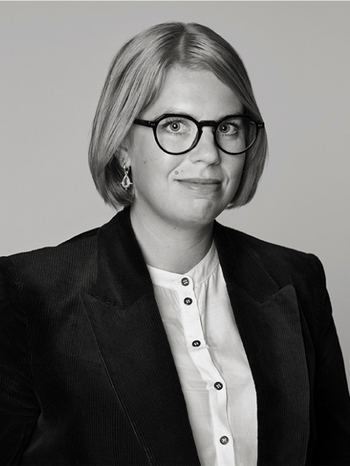Einar Jolin
At the circus
Signed Jolin and dated 1933. With a dedication gift "To Ragnar Hoppe on his 50th birthday from Einar Jolin 19 May 1935". Canvas 60.5 x 73 cm.
Provenance
Art historian Ragnar Hoppe.
Private Collection.
More information
At the end of the 1910s, Einar Jolin took on a prominent role in the Swedish art scene. Having returned from Paris only a few years earlier, where he had studied under the great master Henri Matisse, he developed into an outstanding colourist with a remarkable sense of line and form. In the first half of the decade, Jolin participated in a series of high-profile and ground-breaking exhibitions such as the Baltiska utställningen (Baltic Exhibition) in Malmö in 1914 and the Schwedische Expressioniste at the renowned avant-garde art gallery Der Sturm in Berlin.
The auction's elegant circus motif was executed in 1933 during the period usually referred to as Jolin's ‘Grey Period’ when the artist was already established. Nils Palmgren (‘Einar Jolin’, 1947) writes about the period: ‘The years after returning from Cassis in 1928 belong to Jolin's “grey period”, which extends to the mid-1930s. The blond, flowing has now definitely given way to his oil - even Jolin is well impressed by the cloud that is brooding over the world at this time, the dark and heavy years of the economic depression. And he now cultivates the denominations and tones of grey almost with frenzy. However, he finds new expressions and new richness in canvases, painted, after all, by a sybarite of colour. [...]
Circus and theatre scenes were common motifs among the avant-garde artists of the time, who liked to move in these circles. When Jolin paints his circus picture, he is an artist who has blossomed in his own artistic career with both Swedish and foreign exhibitions behind him. He composes the painting with confidence.


















































